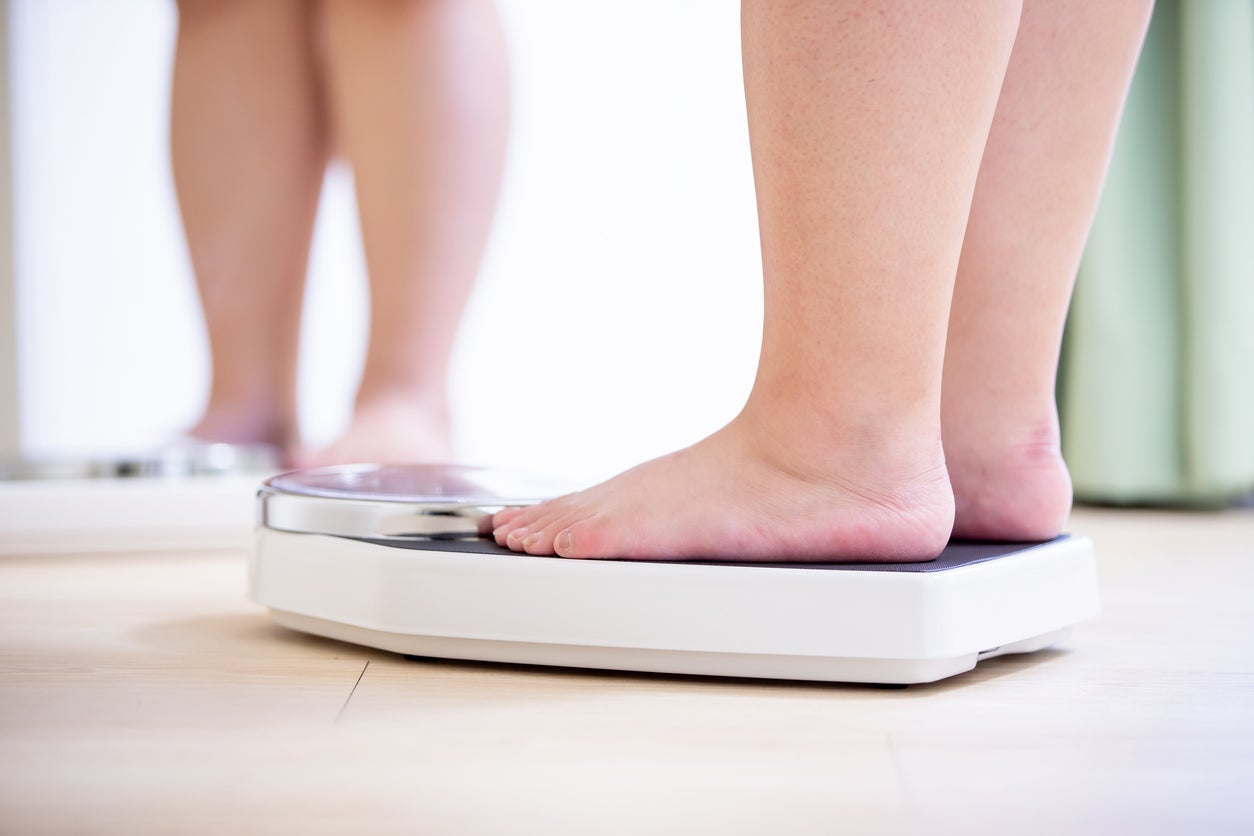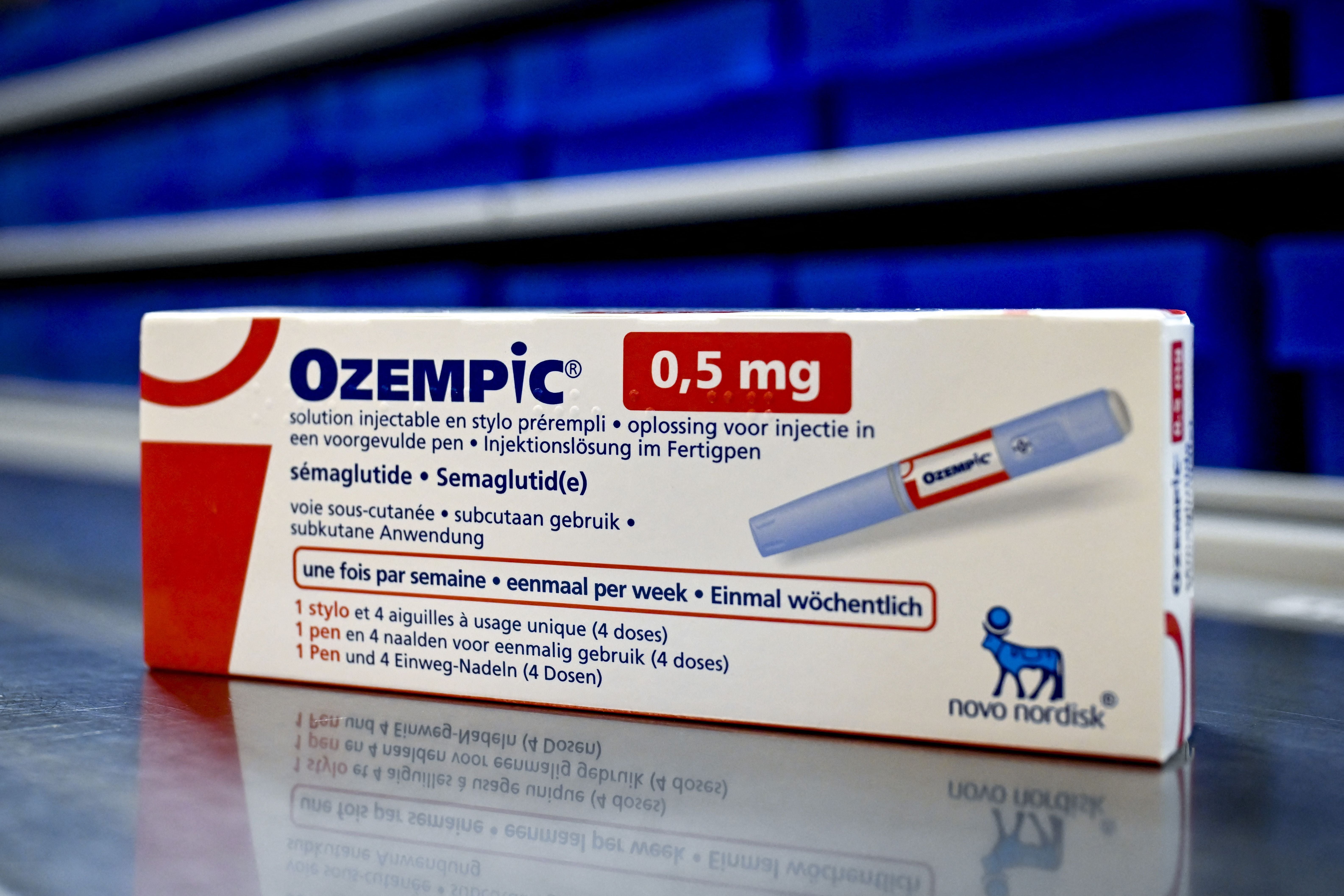Ozempic is tearing our friendship group apart after our body-positive pal started taking it
As warnings are issued over weight loss medication being too easy to buy online, here is one cautionary tale of how it can be abused and what the fallout can be when loved ones raise concerns


I need to tell you something.” It’s a drizzly afternoon in Clapham and B is standing next to a pub table. We look up at her, packed onto a bench around an outdoor heater, flanked by a sea of empty pint glasses. B is laughing nervously, but she’s also shaking. There’s a pause. She laughs again. “It’s not a big deal. But I’m starting a weight loss drug.”
My friend B is wildly perceptive, utterly dependable and funny. Her life is the sort of work-in-progress that most twentysomethings have: she’s uninspired by her job as a dental hygienist, wants to earn more, wants to feel further along in her life, somehow. But otherwise, things are good. She’s in a stable, committed relationship with a guy we all like, her job is secure and she’s great at it, and she has a tight-knit friend group where she is well-loved. There are about 10 of us, both men and women, all in our late twenties, from all sorts of backgrounds and jobs who see each other a couple of times a month.
She laughs again, like it’s a kind of conspiratorial joke.
It’s not received as one, though as a group we are all acutely aware of why it’s being presented so nonchalantly. Years spent growing up in the early 2000s has normalised diet culture’s contagious rhetoric of self-deprecating humour – “I look fat in that photo”, “I’m enormous”, “not for me thanks, I’m trying to be good”.
But it’s more serious than that: we all know that B has had a long, complicated history of disordered eating and body confidence issues, even if she uses humour to hide how much it hurts her.
Just before Christmas, B tried to buy a weight loss injection from a high-street chain. They flatly rejected her – the systems that were in place (accurate measurements, providing GPs’ details) worked and she was turned down on account of not being overweight enough to qualify. The fact that taking these drugs would be harmful was clear and indisputable. We were all quietly relieved. It felt like a drastic thing to be considering, especially given the concerns around the side effects of this sort of medication and how it can be abused by people with disordered eating.
We were happy to see it in the rearview mirror.
But, after some weeks passed, she tried again. Except this time at an online private company – no doctor’s note, just a form and a debit card. And this is where the whole issue shifted from misguided to desperate.
B lied to that company to receive these drugs. I don’t ethically think it’s responsible to detail here how she managed it, but rest assured it was shockingly, laughably easy; a website form with loopholes big enough to drive a tour bus through. It’s terrifying – just last week, the National Pharmacy Association released a statement cautioning the ease and risk of buying these drugs online.

This was then followed by the General Pharmaceutical Council (GPHC) issuing new guidelines for the dispensing of them, saying online pharmacies should only now issue weight loss drugs after weight and measurements have been properly verified. Which is not to say unscrupulous operators won’t be able to circumnavigate the new system.
Despite not being overweight and previously having disordered thought patterns around her eating, B was able to proceed with no end date for the medication, just the goal of losing 25 per cent of her body weight – the highest percentage of weight loss seen on these types of drugs.
As her friends who deeply cared about her welfare, it only felt right to intervene. Quietly we pleaded; sharing our worry, urging her to visit a doctor before taking the drugs. We reassured her that she was healthy, beautiful and loved. But no matter what we threw her way, her response was painfully simple, punctuated by two quiet counters: this is just what I want and no one knows what it’s like being me.
The latter was particularly frustrating to hear. Within our friendship circle, there were many extreme health journeys from dysmorphia to eating disorders. Basically, many of us knew exactly what it was like, and so our reaction was firmly rooted in care. Though there was, predictably, a gender divide: the boys, mostly, were argumentative, one of them leaping straight into righteous fury, another treating it like a heated debate.
It also led us to question, do men really understand what she’s going through? Would they react the same if B was a man? Could they really understand the relentless scrutiny of growing up as a woman, the feeling of your body being more important than anything else about you, your worth dictated by the number on the scales?

But the girls were devastated. Spending a lifetime spinning a story of body positivity from the sticky web of diet culture, it felt like our friend’s decision was completely contradictory to years of carefully constructed arguments for confidence and self-worth outside of body image. It was the breaking of an unspoken vow that took decades to build: we’re all enough, aren’t we?
None of us were on board with what she was doing. Of course, “her body, her choice”, but lying to procure a drug that could do her harm for the cost of just under £2,000 a year felt like it was dangerous, not empowering. To us, it should be someone’s last resort, used as an essential medical weapon against the disease of clinical obesity; life-changing for those who really need it. Except here we all were, in front of our perfectly slim and healthy friend, hearing it announced to us like it was someone showing us their wacky new tattoo.
It felt clear in that moment: this was also a friend who needed help, something we tried our best to give her. We tried empathy, research, honesty, carrot and stick. Everyone hoped something would get through. Three days later, she took the first dose anyway. A dose of a drug that no doctor would ever say was meant for someone of her weight.
It was depressing. For some, it rekindled their own damaged relationship with their body. The effect of this was so powerful, not least because, ironically, B has always been the person promoting body positivity, or jumping into any pub-table debate about feminism. And so to see her seemingly disregard all of that? It stung, and it made us think... well maybe positivity isn’t the answer. Cutting corners is the answer. Skinny is the answer.

On the one hand, I understand why she did it. As she explains it, her battle with her weight has been something ever-present, stuck to her like “a stain she can’t unsee”. And so she wants a quick fix; a “why not?” shot in the dark. But I think her psychology around it is much more complicated, much thornier. She sees “skinny” as the sole doorway towards happiness. That’s something that needs therapy, not a shot of a risky weight loss drug that could do even more damage.
I believe it was right that we voiced our concern, but we might have been clumsy in our approach. Reacting to what feels like a medically induced eating disorder is not something we have the language for, or the knowledge. It also seems to scare us much more than it does her.
Luckily for B, she is unflappable, in a way that, begrudgingly, I still find as charming as I do maddening. Sometimes I worry that our anger has meant that we won’t hear about the side effects, if and when they happen. Though I can’t note any obvious difference in her, some friends have said that since she started taking the drug, they didn’t realise how liberating it could be.
Weeks later, she’s on her fifth or sixth dose and we are all still meeting for drinks a few times a month, with an unspoken tension between the “how are you?”, and the hesitant “what has changed?”, still getting used to supporting someone we love through something so alien to us.
I hope we’ll learn enough to do our best, eventually.
Join our commenting forum
Join thought-provoking conversations, follow other Independent readers and see their replies
Comments


Bookmark popover
Removed from bookmarks